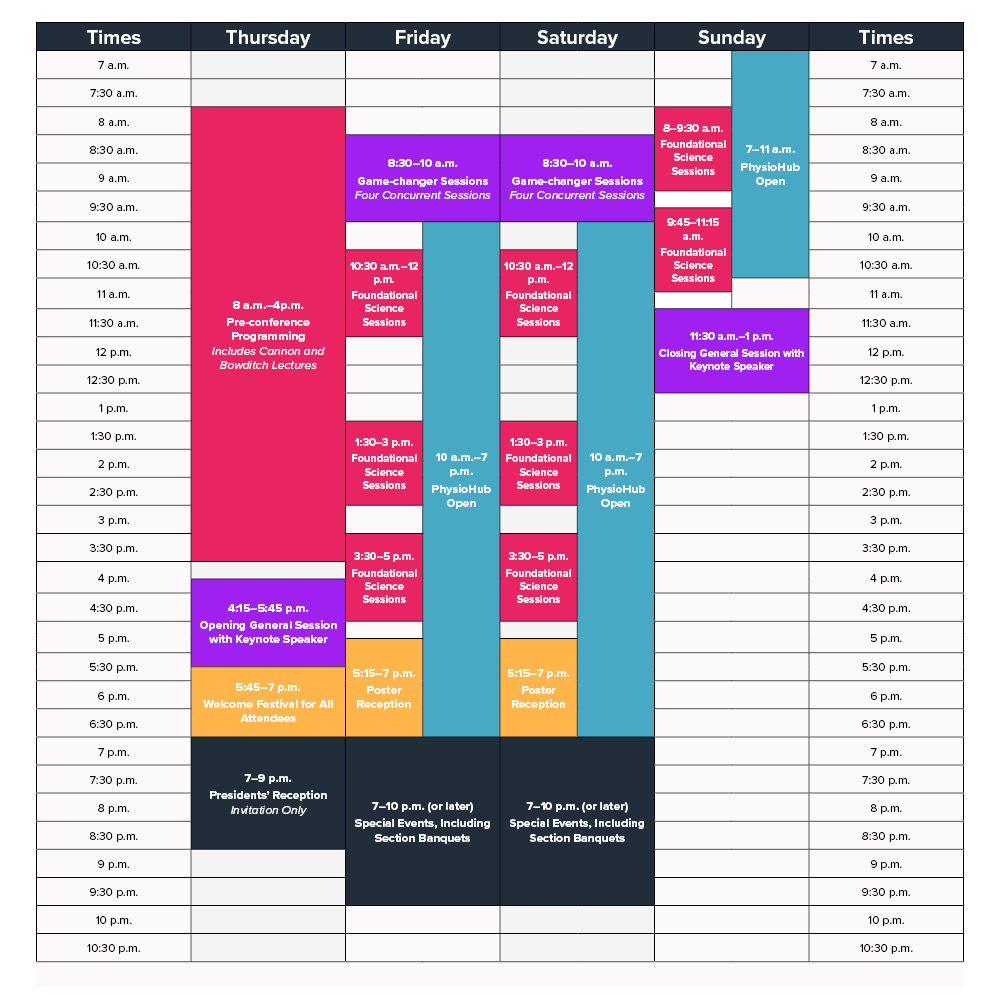The Molecular Circadian Clock: Understanding Its Role in Homeostasis
Friday, April 5, 2024
8:30–10 a.m.
Grand Ballroom 1
This session, chaired by David Pollock, PhD, FAPS, and Ming Gong, MD, PhD, will examine the cutting-edge advances in understanding molecular circadian clocks and how circadian rhythm function is integrated across physiological systems to maintain homeostasis.
Speakers
 Satchidananda Panda, PhD
Satchidananda Panda, PhD
Salk Institute for Biological Studies, San Diego
Satchidananda (Satchin) Panda, PhD, is a professor at the Salk Institute in California, where his research focuses on the circadian regulation of behavior, physiology and metabolism in model organisms and in humans. Panda discovered a blue-light sensing cell type in the retina that entrains our master circadian clock, affects mood and regulates the production of the sleep hormone melatonin. His research suggests that participating in time-restricted feeding can prevent and reverse metabolic diseases. Panda’s lab is carrying out a smartphone-based study to assess the extent of circadian disruption among adults.
 Karen Gamble, PhD
Karen Gamble, PhD
University of Alabama at Birmingham
Karen Gamble, PhD, is the F. Cleveland Kinney Endowed Chair in Geriatric Psychiatry and vice chair of Basic Research in the Department of Psychiatry and Behavioral Neurobiology in the Heersink School of Medicine at the University of Alabama at Birmingham. Her research program, funded largely by NIH, includes work on how circadian rhythms in physiology, behavior, metabolism and sleep-wake cycles are affected by specific brain circuits; nutrition (high salt/fat diets, meal timing); disease (obesity, neurodegeneration, addiction); and the environment. Translational projects address the impact of environmental circadian misalignment (e.g., shift work) or addiction (e.g., smoking) on circadian rhythmicity of behavior and physiology.
 Karyn Esser, PhD
Karyn Esser, PhD
University of Florida
Karyn Esser, PhD, is a professor and chair of the Department of Physiology and Aging at the University of Florida College of Medicine. Her research focuses on defining the transcriptional networks and downstream mechanisms that link the molecular clock with proper muscle function and determining the potential for time-of-day lifestyle interventions to enhance molecular clock function and improve muscle weakness associated with aging and chronic diseases.
Registration
Schedule at a Glance

Click to Enlarge
Summit Menu
- Abstracts
- Awards
- Dates and Deadlines
- Keynote Speaker, Opening—Tracy L. Bale, PhD, FAAAS
- Keynote Speaker, Closing—Jennifer Lippincott-Schwartz, PhD, FBS, FRMS, FASCB
- PhysioHub
Getting and Staying There
About the Summit
Industry Partners

